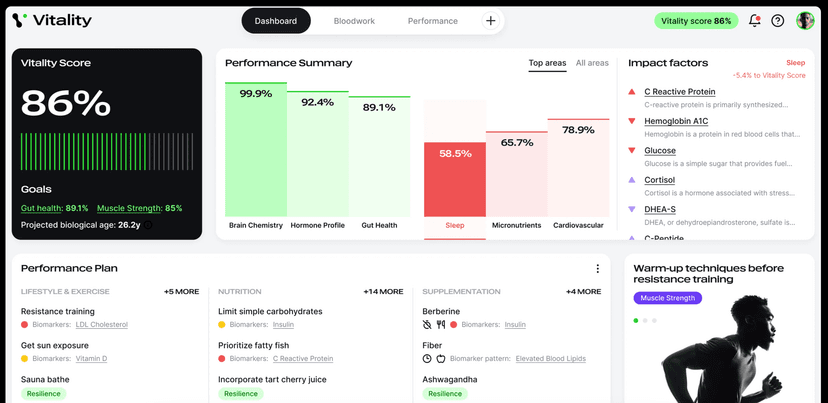Running regularly can bring about many positive changes in both your body and mind. From improving your heart health to boosting your mood, the benefits of running are numerous. This article explores how running can enhance your physical fitness and mental well-being, making it a valuable addition to your routine.
Key Takeaways
- Running strengthens your heart and improves overall cardiovascular health.
- Regular running can help reduce stress and anxiety levels.
- It aids in maintaining a healthy weight by burning calories effectively.
- Running boosts bone density and muscle strength, promoting better joint health.
- Engaging in running can enhance your mood and improve sleep quality.
Cardiovascular Improvements from Regular Running
Running is not just a great way to stay fit; it also brings significant benefits to your heart and blood vessels. Regular running can lead to a healthier heart and better overall cardiovascular health. Here are some key improvements:
Enhanced Heart Health
- Running strengthens the heart muscle, allowing it to pump blood more efficiently.
- It helps lower resting heart rate, which is a sign of a strong heart.
- Regular runners often have lower cholesterol levels, reducing the risk of heart disease.
Lower Blood Pressure
- Engaging in regular running can help lower blood pressure, which is crucial for heart health.
- It promotes better blood flow and reduces strain on the heart.
- Studies show that consistent runners often experience a significant drop in blood pressure over time.
Improved Circulation
- Running increases blood circulation throughout the body, ensuring that muscles and organs receive adequate oxygen.
- Enhanced circulation can lead to better performance in daily activities and sports.
- Improved blood flow also aids in faster recovery after workouts.
Reduced Risk of Heart Disease
- Regular running is linked to a lower risk of developing heart disease.
- It helps manage weight, which is a significant factor in heart health.
- Studies indicate that even moderate running can significantly reduce the risk of heart-related issues.
Running regularly not only boosts your physical health but also plays a vital role in maintaining a healthy heart and reducing the risk of serious diseases.
Musculoskeletal Benefits of Running
Running is not just great for your heart; it also offers significant benefits for your muscles and bones. Regular running can lead to stronger muscles and healthier joints. Here are some key benefits:
Increased Muscle Strength
- Running engages various muscle groups, especially in the legs, core, and back.
- Over time, this leads to improved muscle tone and strength.
- Stronger muscles help support your joints and reduce the risk of injury.
Better Joint Health
- Contrary to popular belief, running can actually improve joint health.
- It helps lubricate the joints, which can reduce stiffness.
- Regular running can strengthen the muscles around the joints, providing better support.
Enhanced Bone Density
- Weight-bearing exercises like running stimulate bone growth.
- This can lead to increased bone density, which is crucial for preventing osteoporosis.
- Studies show that runners often have stronger bones compared to non-runners.
Running regularly not only builds muscle but also strengthens your bones, making it a powerful exercise for overall musculoskeletal health.
Mental Health Benefits of Running Regularly
Reduction in Stress Levels
Running is a great way to manage stress. When you run, your body releases chemicals that help you feel calm and relaxed. This can help you handle stress better in your daily life.
Alleviation of Anxiety and Depression
Many people find that running helps reduce feelings of anxiety and depression. While it may not cure these issues, it can make them easier to manage. Regular running can have effects similar to some medications used for these conditions.
Improved Sleep Patterns
Running can help you sleep better. It helps set a regular sleep schedule and can make it easier to fall asleep. However, running too close to bedtime might keep you awake, so it's best to run earlier in the day.
Boosted Cognitive Function
Running can also improve your brain power. It helps create new brain cells and can enhance your memory and learning abilities. This means that regular runners often find it easier to focus and think clearly.
Running not only strengthens your body but also boosts your mind, making it a powerful tool for overall well-being.
Summary of Mental Health Benefits of Running
| Benefit | Description |
|---|---|
| Stress Reduction | Helps manage stress levels and promotes calmness. |
| Anxiety and Depression Relief | Aids in managing symptoms of anxiety and depression. |
| Better Sleep | Improves sleep quality and helps establish a routine. |
| Enhanced Brain Function | Boosts memory, learning, and overall cognitive abilities. |
Impact of Running on Weight Management
Calorie Burning
Running is an effective way to burn calories. The number of calories burned depends on factors like weight, speed, and duration. Here’s a simple table to illustrate:
| Weight (lbs) | Calories Burned (30 min at 6 mph) |
|---|---|
| 130 | 240 |
| 155 | 298 |
| 180 | 355 |
Regular running can significantly help in managing your weight.
Improved Metabolism
Running boosts your metabolism, which means your body burns calories more efficiently. This can lead to:
- Increased energy levels
- Better digestion
- Enhanced fat burning even at rest
Weight Loss and Maintenance
For those looking to lose or maintain weight, running can be a key part of a healthy lifestyle. Here are some tips:
- Set a consistent running schedule.
- Combine running with a balanced diet.
- Track your progress to stay motivated.
Running not only helps in weight management but also improves overall health and well-being. It's a simple yet powerful way to stay fit.
Neurological Benefits of Running
Running is not just great for your body; it also has amazing effects on your brain. Here are some key benefits:
Creation of New Brain Cells
- Regular running can help your brain create new cells, especially in areas important for memory and learning.
- This process is called neurogenesis, which can lead to better brain performance.
- More brain cells mean a sharper mind!
Enhanced Memory and Learning
- Running boosts the production of proteins that support brain health.
- It can improve your ability to remember things and learn new information.
- Studies show that people who run regularly often perform better on memory tests.
Improved Focus and Concentration
- Exercise like running increases blood flow to the brain, which helps you think more clearly.
- Many runners report feeling more focused and alert after a run.
- This can be especially helpful for students or anyone needing to concentrate on tasks.
Running regularly can lead to a happier and healthier brain, making it easier to handle daily challenges.
In summary, running offers significant neurological benefits that can enhance your overall mental performance and well-being.
Social and Emotional Benefits of Running
Increased Social Interaction
Running can be a great way to meet new people and make friends. Joining a running club or participating in local races can help you connect with others who share your interests. Here are some ways running promotes social interaction:
- Group Runs: Many communities have running groups that welcome all levels.
- Races and Events: Participating in races can create a sense of community.
- Online Communities: Social media and apps allow runners to share experiences and motivate each other.
Improved Mood and Emotional Well-being
Running is known to boost your mood. When you run, your body releases chemicals called endorphins, which can help you feel happier. Regular running can lead to:
- Reduced feelings of anxiety and depression.
- Increased self-esteem and confidence.
- A sense of accomplishment after completing a run.
Reduced Feelings of Loneliness
Running can help combat loneliness. Whether you run alone or with others, it provides a chance to clear your mind and focus on yourself. Here are some benefits:
- Time for Reflection: Running alone allows for personal reflection and mindfulness.
- Shared Experiences: Running with friends can strengthen bonds and create lasting memories.
- Community Support: Being part of a running group can provide emotional support and encouragement.
Running not only strengthens your body but also nurtures your mind and spirit. It’s a simple yet powerful way to enhance your overall well-being.
Tips for Starting and Maintaining a Running Routine
Starting a running routine can be challenging, but with the right approach, you can make it enjoyable and sustainable. Here are some helpful tips:
Setting Realistic Goals
- Start small: Aim for short distances and gradually increase your running time.
- Write it down: Keep a log of your running days and distances to track your progress.
- Be flexible: Adjust your goals as needed based on how your body feels.
Finding a Running Buddy
- Accountability: Having a friend to run with can motivate you to stick to your schedule.
- Social interaction: Running with someone can make the experience more enjoyable.
- Shared goals: You can encourage each other to reach your running targets.
Importance of Rest and Recovery
- Listen to your body: If you feel pain or fatigue, take a break.
- Rest days: Allow at least one day of rest between runs to help your body recover.
- Cross-training: Consider other activities like biking or swimming to give your legs a break while staying active.
Listening to Your Body
- Be mindful: Pay attention to how you feel during and after your runs.
- Adjust intensity: If running feels too hard, try walking or jogging at a slower pace.
- Consult a doctor: If you have health concerns, talk to a healthcare professional before starting.
Remember, consistency is key! Even short runs can add up over time and lead to significant improvements in your fitness.
Conclusion
In summary, running regularly offers a wide range of benefits for both your body and mind. It helps improve your physical health by strengthening your heart and muscles, while also reducing the risk of serious conditions like heart disease. Mentally, running can lift your mood, reduce stress, and even help with sleep. The chemicals released during and after running can make you feel calmer and happier. So, whether you're a beginner or a seasoned runner, making running a part of your routine can lead to a healthier and happier life.
Frequently Asked Questions
What are the main health benefits of running regularly?
Running helps improve heart health, strengthen muscles, boost mood, and even enhance brain function.
How often should I run to see benefits?
To see benefits, aim to run at least 3 to 5 times a week for about 30 minutes each time.
Can running help with weight loss?
Yes, running burns calories and can help you lose weight or maintain a healthy weight.
Is it safe for beginners to start running?
Absolutely! Beginners should start slow, perhaps with walking or jogging, and gradually increase their pace and distance.
How does running affect mental health?
Running can reduce stress, anxiety, and depression while also improving sleep and boosting overall mood.
What should I wear when I go running?
Wear comfortable, breathable clothing and supportive running shoes to help prevent injuries.
























